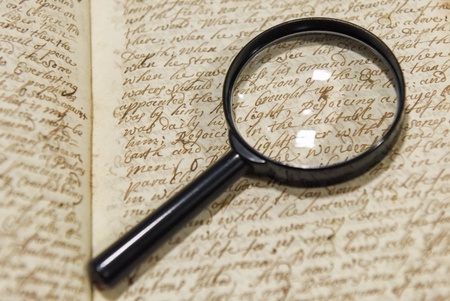The diary of an 'ordinary north-east man' gifted to the University of Aberdeen has provided new insights in the Jacobite Rebellions and their devastating economic impact.
The diary of Alexander Smith from Fraserburgh offers a glimpse into how everyday lives were affected by the uprisings of both 1715 and 1745.
Dr Kirsteen MacKenzie, a Lecturer in History at the University of Aberdeen describes the diary as a ‘unique source for the period’ providing historians with new evidence from the perspective of an ordinary working man who was not involved in the rebellions and appears to have had no affiliation to either the Jacobites or Hanoverians.
Nonetheless, his life – like many others living in the Aberdeenshire town - was deeply affected by the events of both 1715 and 1745, something commonly omitted from descriptions of this turbulent period in Scotland’s history.
“The diary in which Alexander Smith looks back on his life was donated to the University’s Special Collections by a descendant of Smith,” said Dr MacKenzie.
“I was a volunteer in the archives at the time and it immediately took my interest and it is a truly fascinating account of the Jacobite Rebellions, told from a perspective I’ve never come across before and about a region for which little information exists when it comes to these events.
“There has been a huge amount of research into the Jacobite cause, the key events and battles and the political and cultural impact of the uprisings but we still know little of how deeply they affected ordinary people with no direct connection to the rebellion.
“Smith’s diary changes this and we can see just how widespread the impact on ordinary men and women was.”
Smith, who was born in the late 17th century to ‘lowly stock’ was poorly educated but went on to excel in his apprenticeship as a square wright, similar to a modern day joiner.
His woodworking skills attracted the attention of the Aberdeenshire elites and by 1715 he was earning enough money to live independently.
But when the uprising began, he describes how this quickly ground to a halt as economic activity in Fraserburgh rapidly declined and soldiers came through the town. Without work and with his training finished, Smith was forced to move back in with his parents to survive.
Following the 1715 Rebellion, things for Smith improved greatly and by throughout the 1720s and 30s his reputation flourished, so much so that by the 1740s he was running a successful business and was commissioned to build furniture for the Duff family, of Duff House in Banff, and the Frasers of Philorth. He was also employed to build manses for the Church of Scotland around the area.
Then the 1745 rebellion occurred and the impact on Smith and his family was even more devastating than it had been 30 years earlier.
Smith describes in the journal how the price of wood ‘shot up’ and became in such short supply that he was forced to travel to Lochaber on the West coast to source the material, a journey Dr MacKenzie says would have been ‘long and arduous’ at this time.
He also writes of his ‘temptation’ to go to the black market to obtain material, an action that eventually landed him in court in Aberdeen when he was caught trying to take wood from a shipwreck off the Aberdeenshire coast.
Smith also records the problems of maintaining a workforce with many of his colleagues abandoning their posts to join the Jacobite cause and the fear caused by the presence of soldiers in the towns and villages.
Dr MacKenzie adds: “Smith notes that when Jacobite armies come through the area, work stops completely. It is not hard to see why this would be the case - Smith is employed to build and repair homes and to make furniture - with armies in the region and the threat that villages could be destroyed, no- one wants to pay for this type of work. When it is time for Smith to be paid, he doesn’t get paid and never really recovers financially again.
“It is remarkable to have this level of detail available to us about the indirect effects of the Jacobite Rebellions and it complements the University’s other Jacobite holdings to help us build a more detailed picture of life in Scotland at this time.”
Dr MacKenzie shared details of Smith’s diary and the University of Aberdeen’s extensive Jacobite collection as part of a podcast for the popular Outlander series which can be viewed online http://www.outlanderpod.com/


